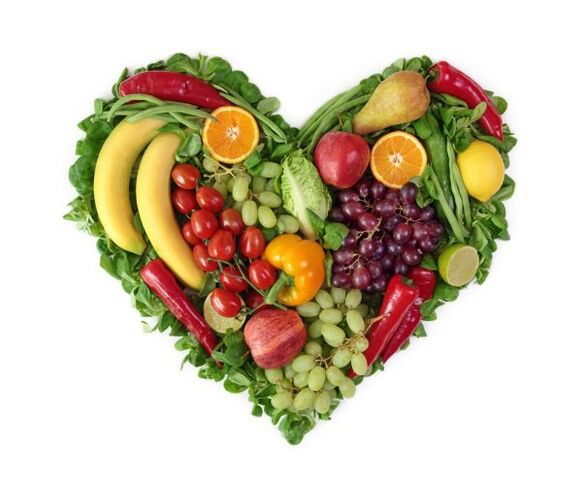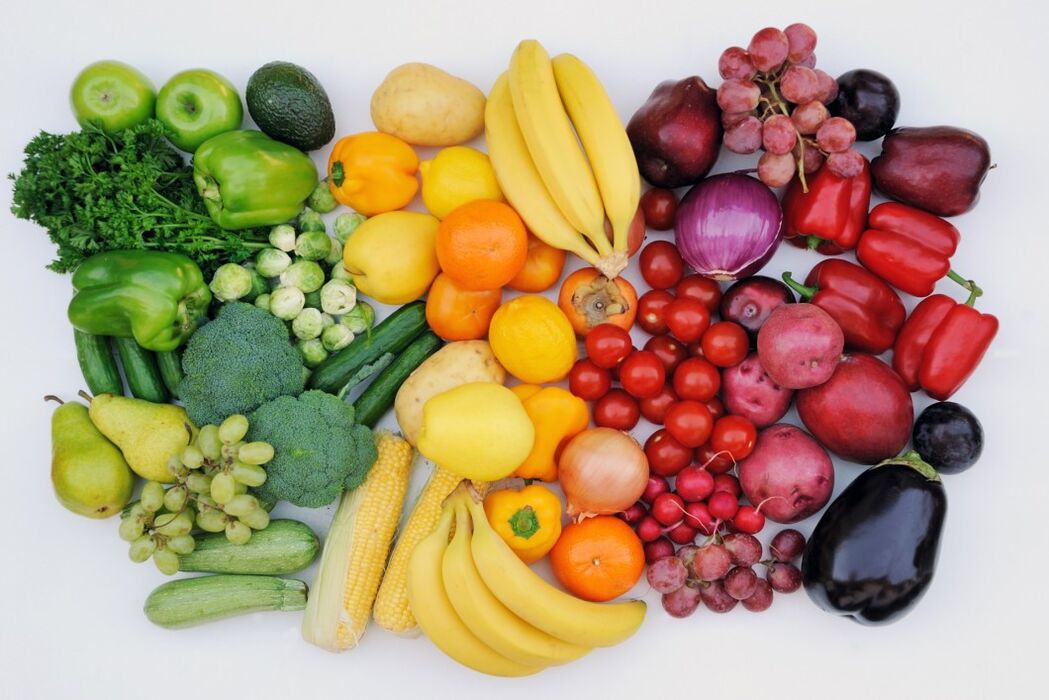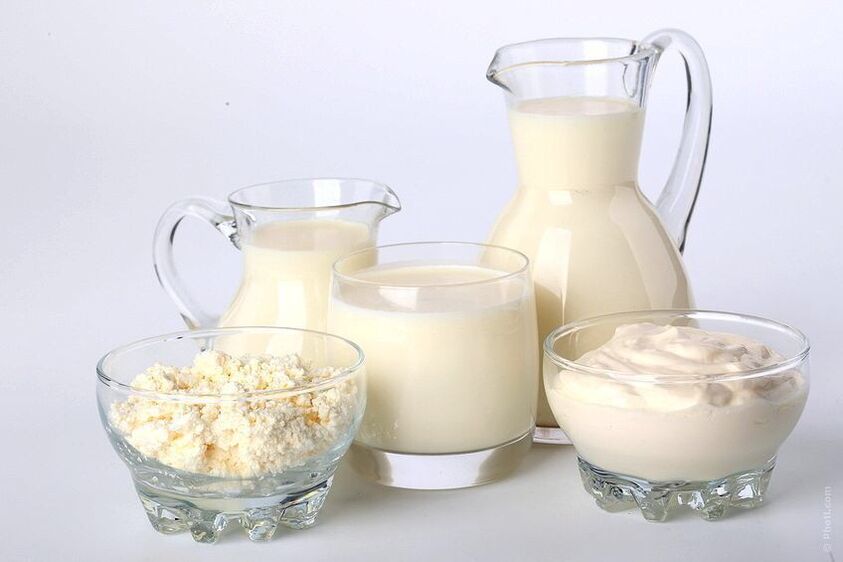A balanced diet should provide the required amount of nutrients necessary to satisfy your daily food needs.At the same time, it is necessary to find a balance between regular physical activity and the number of calories that you consume daily what is necessary to maintain the correct energy balance - ideally you must consume as many calories as you can burn throughout the day.

A balanced diet should be selected individually.You can select products according to your own wishes - do you want to lose weight, gain muscle mass or just support the body in good shape?Food will be completely different in each case!
A balanced diet suggests that you should eat 3-5 times a day, in small portions, distributing proteins, fats and carbohydrates as follows:
- 50-60 percent of energy should come from carbohydrates, mostly complex-cereals, whole grain bread, coarse flour, and only up to 10 percent of energy can enter the body from simple sugars-sweets, sugar, fruits, honey.
- From 20 to 30 percent of energy should come from fats.However, the standards of their consumption depend on the energy needs of the human body, age, gender, type of physical activity or physiological state (pregnancy, disease).According to the recommendations of the World Health Organization (WHO) and numerous groups of experts, fats should provide at least 15-20 percent of energy from the diet, a maximum of 30 or even 35 percent.Here we are talking, of course, about fatty acids that can be obtained from nuts and seeds, as well as from unrefined oil - linen, olive, sesame seeds.
- 10-15 percent of energy should proceed from proteins, preferably plant origin-legumes, lentils, chickpeas.
According to a study in the field of a healthy lifestyle, an adult with average physical activity requires 30 calories for every kilogram of body weight.Therefore, a woman who weighs about 60-70 kg needs at least 2000 kcal per day-to maintain all the processes of the body's life and its normal functioning.If at the same time you have a high level of physical activity - the number of calories consumed, respectively, should be higher.
Menu for proper nutrition - make a diet

Unfortunately, very often a lack of time, ideas and a constant feeling of fatigue often make us not think about what, how and when we eat.But, in fact, healthy diet is not at all difficult!If you regularly adhere to a few simple power rules - soon it will become a habit!So let's not look for excuses and begin to take care of our health today - remember that it depends on yourself.
Regularity
Divide the daily diet into small portions.Eat 4-5 times a day every 3-4 hours-this will accelerate metabolism and improve metabolism.Regular eating at the same time helps maintain blood sugar at the proper level and, thus, protects the body from hunger attacks, which often leads to unhealthy snacks and overeating.Breakfast is best eaten 1-2 hours after awakening, and dinner-3 hours before bedtime.It is important to observe all these rules in order to quickly lose weight without harm to the body.
Vegetables and fruits

Vegetables and fruits should be consumed in large quantities as often as possible.They should be at least half of the total diet, in the corresponding proportions: ¾ - vegetables, ¼ - fruits.Their effect on health is due to the content of very many vitamins (including vitamins C, E, folic acid, beta-carotene), minerals (including potassium, magnesium, calcium, iron) and fiber.Diet, rich in vegetables and fruits, affects the correct functioning of the digestive, immune and hormonal systems.
Cereals and cereals
Groups are advised to use on a daily basis.Groups normalize digestion, cleanse the body and charge with energy.Cereals and cereals should be a component of most dishes.They contain complex carbohydrates, which are the main source of energy for the human body.Choose bread from coarse flour, brown rice, or one of the cereals (buckwheat, barley, oatmeal, millet or rye).All -grain products are also a source of B vitamins, magnesium, zinc and fiber that regulate the digestive tract and reduce blood cholesterol.
Milk and dairy products

In the daily diet, dairy products should be present - natural yogurt, kefir or cottage cheese.This is a source of calcium for the body, which is the main building block of bone tissue.Solid cheeses, due to the high content of saturated fats and salt, should only be consumed from time to time.It is worth noting that dairy products are often allergenic, so they should choose with particular caution to people with allergies or food intolerance.
Meat, fish and eggs
Products from this group are a source of useful protein - the main building material of our muscles, so do not forget about them.It is recommended to limit the consumption of red meat and processed meat products up to 0.5 kg/week, since, as recent studies have shown, their high consumption contributes to the development of cardiovascular diseases.You can consume poultry agricultural meat or baked in the oven, or replace it with fish (preferably fatty, which is rich in unsaturated fatty acids from the Omega-3 group).1-2 times a week should also consume plant protein from legumes-soy, lentils or chickpeas.
Vegetable oils

The biological value of vegetable oils is determined by their fat-acid composition and the number of related substances: saturated fatty acids prevail in sesame, soy and cotton oil.Vegetable oils should be an addition to the daily diet, preferably as a gas station for salads.Rapse oil and olive oil can be used to prepare cold and hot dishes.The remaining oils should not be subjected to thermal effects.Flue and sesame oils have especially useful properties.
Salt and sugar
Sugar and salt are those flavors that we use every day without even thinking about it.We put sugar in drinks, it is also necessary for the preparation of classical pastries.Without the use of salt, not a single everyday dish is complete.Do not consume more than 5 g of salt per day (1 small flat spoon).Use herbs, spices and seasonings instead of salt - this will help prevent swelling.Also limit the consumption of sugar and sweets, because these are empty calories that do not bear any benefit.Replace them with fresh fruits, dried fruits or nuts.
Drink water

When we are talking about proper nutrition, do not forget that water is one of the main elements of a healthy diet.For proper hydration, you need to consume at least 8 glasses per day of pure water.Juices and carbonated drinks should fade into the background or completely disappear from your life.Take a rule to drink a glass of water 30 minutes before meals - the water will partially fill the stomach and will not allow you to overeat.
It will be useful:
- Eat at least five servings of different vegetables and fruits per day.
- Eat at least two portions of fish per week.
- Consume more plant products.
- Limit the amount of consumption of saturated fats, sugar and salt.
- Do not skip food meals - you should have a full breakfast, lunch and dinner.
- Drink a lot of water, about 6-8 glasses every day.
- Be physically active.
Remote weight loss mode
Hard food restriction is effective in the short term.Therefore, sitting on one kefir or buckwheat porridge, you need to be prepared for the fact that the lost kilograms will quickly return.But you can rebuild your own diet in such a way as to reduce weight and fix it at the same level of plus or minus 2 kg.To do this, you should eat fractionally: not in large portions three times a day, but in small doses 5 times.You will also have to abandon all calories:
- soda sweet drinks;
- alcohol;
- desserts;
- fried and baked potatoes;
- fat red meat;
- sausages and sausages;
- flakes, fast -cook breakfasts;
- fast food;
- Bedes and other baking of white wheat flour.
The basis of the diet should be fresh vegetables and fruits, low -fat fish and white meat, cereals with the exception of white rice.It is useful to keep a food diary, given all meals, even the most insignificant.You should also calculate the daily calorie rate for your weight and lifestyle, take 300-500 units from it, and adhere to just such calorie content.























